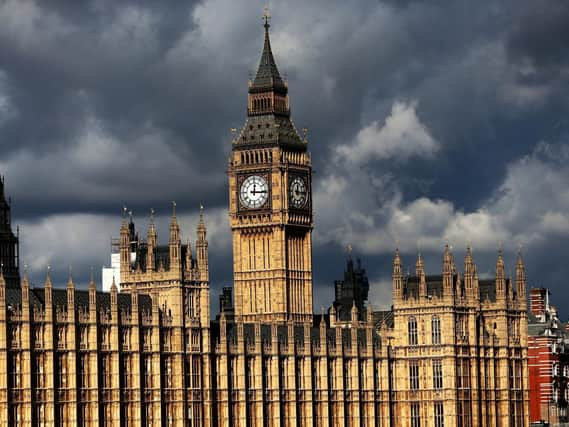Why the Treasury Select Committee must cast a critical eye over the loan charge - Greg Wright


In a detailed and troubling letter to the Government, Lord Bridges of Headley, the chair of the House of Lords Economic Affairs Finance Bill Sub-Committee, outlines his clear belief that HMRC still needs to get its house in order when it comes to dealing with the loan charge.
In 2019, a review carried out by Sir Amyas Morse found the design and delivery of the loan charge didn’t get the balance right between tackling tax avoidance and protecting the rights of taxpayers and, in some cases, had caused serious distress to the individuals affected.
Advertisement
Hide AdAdvertisement
Hide AdAt the time, Sir Amyas said he was pleased to see the Government commit to act on the recommendations of his review, “bringing the loan charge back into line with the wider tax system”.
In a letter to Jesse Norman, the Financial Secretary to the Treasury, Lord Bridges, said that although HMRC had made progress in improving the way it manages the loan charge and tackling promoters of disguised remuneration schemes, there are far too many shortcomings in its response to the Morse review.
The sub-committee was also told by the Loan Charge Action Group that, following Freedom of Information requests, it had been confirmed that HMRC themselves had in the past used contractors who were using disguised remuneration schemes, “which is clearly (and highly) embarrassing to them”.
The respected tax barrister, Keith Gordon, told the sub-committee that, when HMRC was asked this question, “the response was, ‘we don’t pay people in loans’. That was not the question asked, yet it is clear that in 2019 it was still engaging people who were using these arrangements”.
Advertisement
Hide AdAdvertisement
Hide AdIn his letter to Jesse Norman, Lord Bridges said: “Mary Aiston of HMRC told us that, “there were 15 occasions that we have identified where somebody who was a contractor doing work for HMRC was also at the same time using a disguised remuneration case… of those 15 people, five had already stopped and we took immediate action to end the contracts of the other 10, so they were no longer working with us. We will continue to run those checks.”
Ms Aiston told the sub-committee: “We are clear with the agencies that we work with that they need to meet the certain standard… if we found that the agency was not, then that is something we would take very seriously.”
Lord Bridges was unimpressed. He said: “HMRC should practice what it preaches and take further steps to avoid using employment agencies and contractors that use disguised remuneration or other tax avoidance schemes.”
There are other reasons for keeping the loan charge controversy in the public domain. Parliamentarians and the Loan Charge Action Group have repeatedly warned that the loan charge poses a suicide risk to honest people who acted on professional advice and had no intention of avoiding their responsibilities as taxpayers.
Advertisement
Hide AdAdvertisement
Hide AdIn a written reply to Dr Julian Lewis MP – who is a member of the Loan Charge All Party Parliamentary Group (APPG) – Jesse Norman wrote: “HMRC records show that in six cases taxpayers have very sadly taken their lives and have also been identified as having used a disguised remuneration scheme.
“On each occasion HMRC referred the case to the Independent Office for Police Conduct (IOPC), and HMRC undertook an internal investigation. Four investigations have been concluded and in all no staff misconduct was identified which might warrant disciplinary action.”
The APPG said it was aware of seven people who had died by suicide while facing the loan charge.
HMRC has said it remains committed to ensuring that everyone pays the tax they owe, including tackling the marketing and use of disguised remuneration tax avoidance schemes.
Advertisement
Hide AdAdvertisement
Hide AdThe letter from Lord Bridges provides HMRC with food for thought. Surely it is time for MPs to follow the House of Lords’ lead?
The ball is in the Treasury Select Committee’s court, which is chaired by Mel Stride, a former Treasury Minister. The best way to bolster faith in Government is to place contentious policies into the clear light of Parliamentary scrutiny.
Support The Yorkshire Post and become a subscriber today. Your subscription will help us to continue to bring quality news to the people of Yorkshire. In return, you'll see fewer ads on site, get free access to our app and receive exclusive members-only offers. Click here to subscribe.
Comment Guidelines
National World encourages reader discussion on our stories. User feedback, insights and back-and-forth exchanges add a rich layer of context to reporting. Please review our Community Guidelines before commenting.